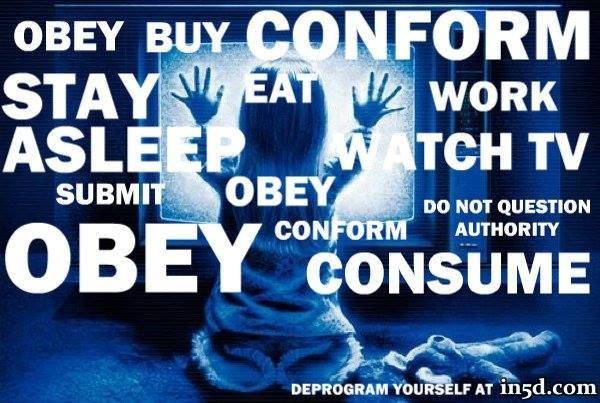What if the purpose of our lives is not to be happy? How much of our lives are lived worshiping at the altar of amusement? Man has, in Aldous Huxley‘s phrase, “an infinite appetite for distraction.” Pascal told us “that the sole cause of man’s unhappiness is that he does not know how to stay quietly in his room.” (Pensee 136). In this post, I will explore this issue, and hope it will not be another negative distraction.
As a college student I used many distractions such as movies, girls, even ministry to distract me from doing the things I should be doing. Now life is still full of distractions for me. Some of them are healthy and others not so. What is the difference?
 Blaise Pascal 1623–1662) is a French mathematician, physicist and philosopher who wrote about the existential struggle all of us, that is, all of us who think, have about death. The Pensées, is his masterpiece. He focused on distraction as one of our main problems.
Blaise Pascal 1623–1662) is a French mathematician, physicist and philosopher who wrote about the existential struggle all of us, that is, all of us who think, have about death. The Pensées, is his masterpiece. He focused on distraction as one of our main problems.
We live from one distraction or diversion to the next. Sleep, work, driving, TV, reading, parties, fights, friends, homework, suffering, and again, sleep, work, driving, TV etc. and the cycle goes on and on. When do we sit down and be quiet with our own soul and God before it is too late? Can we even do that?
Justin Taylor rightly reminds us of Pascal’s ideas quite well. He notes that diversion cannot bring sustained happiness, since it locates the source of happiness outside of us; thus, our happiness is dependent on factors often beyond our control, so that we are “liable to be disturbed by a thousand and one accidents, which inevitably cause distress.” The power may go off, the screen freeze, or the cell phone connection may break up. Worse yet, our own sensoriam may break down as sight dwindles, hearing ebbs, olfactory awareness fades, and all manner of bodily pleasures become harder to find and easier to lose. As the Preacher of Ecclesiastes intones, “Remember your creator in the days of your youth, before the days of trouble come, and the years draw near when you will say, ‘I have no pleasure in them’ ” (Eccl 12:1). SOURCE
 I know of very few works that summarize this better than the opening to Amusing Ourselves to Death by Neil Postman.
I know of very few works that summarize this better than the opening to Amusing Ourselves to Death by Neil Postman.
Here it is:
But we had forgotten that alongside Orwell‘s dark vision, there was another – slightly older, slightly less well known, equally chilling: Aldous Huxley‘s Brave New World. Contrary to common belief even among the educated, Huxley and Orwell did not prophesy the same thing. Orwell warns that we will be overcome by an externally imposed oppression. But in Huxley’s vision, no Big Brother is required to deprive people of their autonomy, maturity and history. As he saw it, people will come to love their oppression, to adore the technologies that undo their capacities to think.
What Orwell feared were those who would ban books. What Huxley feared was that there would be no reason to ban a book, for there would be no one who wanted to read one. Orwell feared those who would deprive us of information. Huxley feared those who would give us so much that we would be reduced to passivity and egoism. Orwell feared that the truth would be concealed from us. Hux
ley feared the truth would be drowned in a sea of irrelevance. Orwell feared we would become a captive culture. Huxley feared we would become a trivial culture, preoccupied with some equivalent of the feelies, the orgy porgy, and the centrifugal bumblepuppy. As Huxley remarked in Brave New World Revisited, the civil libertarians and rationalists who are ever on the alert to oppose tyranny “failed to take into account man’s almost infinite appetite for distractions.” In 1984, Orwell added, people are controlled by inflicting pain. In Brave New World, they are controlled by inflicting pleasure. In short, Orwell feared that what we fear will ruin us. Huxley feared that what we desire will ruin us.
This book is about the possibility that Huxley, not Orwell, was right.”
― Neil Postman, Amusing Ourselves to Death: Public Discourse in the Age of Show Business




This reminds me K of something I have just read by Roger Scruton whom suggests that we lose the capacity to deal with loss when we lose a religious consciousness. Consequently we try to distance ourselves emotionally from any and every attachment that we ‘recognise’ would cause us pain were we to lose it—- a dynamic which Scruton suggests accounts for what he sees as an increasing ‘hard heartedness’ within Western Sociey– a hard hearteness which leads to us treating each other as objects rather than as subjects. The link with your piece is that he sees what at times maybe appears to be our emphasis on amusing ourselves, on having fun, on being entertained as the very mechanism we use to distract ourselves from forming attachments that we cannot risk losing. What do you think?
Well said Pauline! Death in general and our mortality in particular makes us uncomfortable, so it is easier to ignore these questions as we immerse ourselves in amusement rather than personal reflection and —change!
Pauline
Thanks for sharing that. That is profound in its implications.
Don’t attach to anything and nothing will hurt you! It reminds me of something CS Lewis said
To love at all is to be vulnerable. Love anything and your heart will be wrung and possibly broken. If you want to make sure of keeping it intact you must give it to no one, not even an animal. Wrap it carefully round with hobbies and little luxuries; avoid all entanglements. Lock it up safe in the casket or coffin of your selfishness. But in that casket, safe, dark, motionless, airless, it will change. It will not be broken; it will become unbreakable, impenetrable, irredeemable. To love is to be vulnerable.”
― C.S. Lewis, The Four Loves
Pauline
Thanks for sharing that. That is profound in its implications.
Don’t attach to anything and nothing will hurt you! It reminds me of something CS Lewis said
To love at all is to be vulnerable. Love anything and your heart will be
wrung and possibly broken. If you want to make sure of keeping it
intact you must give it to no one, not even an animal. Wrap it carefully
round with hobbies and little luxuries; avoid all entanglements. Lock
it up safe in the casket or coffin of your selfishness. But in that
casket, safe, dark, motionless, airless, it will change. It will not be
broken; it will become unbreakable, impenetrable, irredeemable. To love
is to be vulnerable.”
― C.S. Lewis, The Four Loves